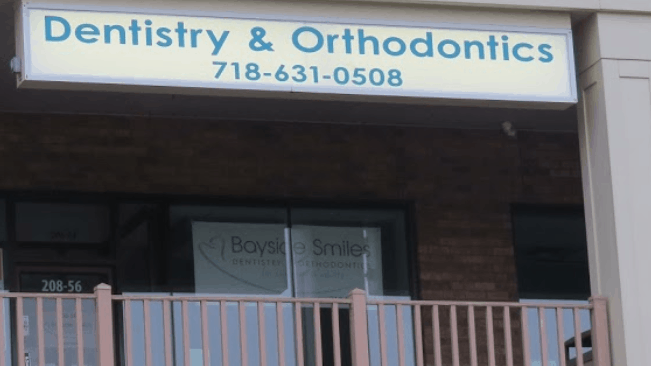Dental anxiety is a common fear that affects many individuals, often leading to avoidance of crucial oral health care. In fact, according to the Columbia University College of Dental Medicine, approximately 30-40 million Americans avoid going to the dentist due to anxiety and fear. This can have detrimental effects on one’s oral health, leading to serious issues such as tooth decay, gum disease, and even tooth loss. In New York City, where there is a plethora of dental care options available, overcoming dental anxiety is crucial for maintaining optimal oral health and overall well-being.
In a bustling metropolis like New York City, the bustling streets and fast-paced lifestyle can exacerbate feelings of anxiety and stress, making a trip to the dentist even more daunting. However, with the advancements in dental technology and the availability of sedation options, individuals can now overcome their fears and receive the dental care they need. By addressing the root cause of their anxiety and seeking out supportive dental professionals, individuals in New York City can transform their fear into confidence when it comes to dental visits. In the upcoming sections, we will discuss key strategies and tips for overcoming dental anxiety and taking control of your oral health in the vibrant city of New York.
What you should know
1. Dental anxiety is a common issue that many people face, but it is important to address it in order to maintain good oral health.
2. The first step in overcoming dental anxiety is to find a dentist who understands and accommodates your fears.
3. Techniques such as deep breathing and visualization can help manage anxiety during dental appointments.
4. Communication with your dentist about your fears and concerns is crucial in building trust and making the experience more comfortable.
5. Regular dental check-ups are essential for maintaining oral health, and finding a supportive dentist can make the process much easier for those with dental anxiety.
How can individuals overcome dental anxiety in New York City?
Individuals can overcome dental anxiety in New York City by seeking out a dentist who specializes in treating patients with dental phobias. These dentists are trained to provide a calming and supportive environment for anxious patients, helping them feel more comfortable and at ease during their dental visits. Additionally, many dental offices in New York City offer sedation options such as nitrous oxide or oral sedatives to help patients relax during their appointments.
Understanding the root causes of dental anxiety
It is important for individuals to understand the root causes of their dental anxiety in order to effectively overcome it. Common causes of dental anxiety include fear of pain, embarrassment about the condition of their teeth, or a negative past dental experience. By identifying the specific triggers of their anxiety, individuals can work with their dentist to develop coping strategies and techniques to manage their fears.
Therapies such as cognitive-behavioral therapy (CBT) can also be effective in helping individuals address and overcome their dental anxiety. CBT helps patients reframe their negative thoughts and beliefs about dental visits, allowing them to approach their appointments with a more positive and confident mindset.
Creating a comfortable and supportive dental environment
In New York City, many dental offices are equipped with amenities such as noise-canceling headphones, soothing music, and comfortable seating to help patients feel more relaxed during their appointments. Dentists and dental hygienists are also trained to communicate effectively with anxious patients, providing reassurance and support throughout the treatment process.
For individuals with severe dental anxiety, seeking out a dentist who offers options for sedation dentistry can be beneficial. Sedation dentistry allows patients to undergo dental procedures while in a relaxed and calm state, minimizing discomfort and anxiety during the appointment.
Utilizing relaxation techniques and mindfulness practices
Practicing relaxation techniques such as deep breathing, meditation, or progressive muscle relaxation can help individuals manage their dental anxiety and feel more at ease during their appointments. Mindfulness practices, such as focusing on the present moment and staying grounded in the sensations of the dental visit, can also be effective in reducing anxiety and promoting a sense of calm.
Additionally, some dental offices in New York City offer alternative therapies such as aromatherapy or acupuncture to help patients relax and feel more comfortable during their appointments. These holistic approaches can complement traditional dental treatments and provide individuals with additional tools to overcome their dental anxiety.
1. What is dental anxiety and how common is it?
Dental anxiety is a common fear or phobia that many people experience when visiting the dentist. It can range from mild nervousness to severe panic attacks. According to studies, it is estimated that up to 75% of adults in the United States experience some form of dental anxiety. This fear can be triggered by various factors such as past traumatic experiences, fear of pain, or feeling out of control in the dental chair.
2. How can dental anxiety be overcome?
There are several strategies that can help individuals overcome dental anxiety. One approach is to communicate openly with your dentist about your fears and concerns. This can help the dentist tailor the treatment to your needs and provide reassurance throughout the process. Additionally, practicing relaxation techniques such as deep breathing or visualization can help calm nerves before and during the appointment. Some dental offices in New York City also offer sedation options for patients with severe anxiety, such as nitrous oxide or oral sedatives.
3. Can choosing the right dentist help with dental anxiety?
Yes, choosing the right dentist can make a significant difference in managing dental anxiety. Look for a dentist in New York City who specializes in treating anxious patients and has experience in providing gentle and compassionate care. It is also important to find a dentist who is willing to listen to your concerns and work with you to create a comfortable and stress-free environment. Reading reviews and asking for recommendations from friends or family members can help you find a dentist who is a good fit for your needs.
4. Are there any specific techniques or therapies that can help with dental anxiety?
There are several techniques and therapies that can help individuals cope with dental anxiety. Cognitive-behavioral therapy (CBT) is a common approach that helps individuals identify and change negative thought patterns related to dental visits. Hypnotherapy and acupuncture are also alternative therapies that some people find helpful in reducing anxiety. Additionally, some dental offices in New York City offer amenities such as noise-canceling headphones, aromatherapy, or virtual reality goggles to help distract patients and create a more relaxing environment.
5. Is dental anxiety a serious issue that should be addressed?
Yes, dental anxiety is a serious issue that can have negative consequences on a person’s oral health. Avoiding dental visits due to fear can lead to untreated dental problems, which can worsen over time and result in more extensive and costly treatments. Regular dental check-ups and cleanings are essential for maintaining good oral health and preventing serious dental issues. Addressing dental anxiety and finding ways to manage it can help individuals prioritize their oral health and receive the necessary care they need.
6. How can I prepare for a dental appointment if I have dental anxiety?
There are several steps you can take to prepare for a dental appointment if you have dental anxiety. First, communicate your fears and concerns with your dentist ahead of time so they can accommodate your needs. Arrive early to the appointment to give yourself time to relax and unwind before the treatment. Bring a trusted friend or family member with you for support, and consider using relaxation techniques such as deep breathing or listening to calming music during the appointment. Remember that it’s okay to take breaks or ask for additional support if needed.
7. Are there any specific dental treatments that are more anxiety-inducing than others?
While dental anxiety can vary from person to person, some dental treatments are commonly associated with higher levels of anxiety. Procedures such as root canals, extractions, or periodontal treatments are often perceived as more invasive and can trigger fear in some individuals. However, it’s important to remember that advancements in dental technology and techniques have made these procedures more comfortable and efficient. Communicating your fears with your dentist and discussing sedation options can help alleviate anxiety and make the treatment process more manageable.
8. Can dental anxiety be passed down from parents to children?
There is some evidence to suggest that dental anxiety can be passed down from parents to children through observational learning and genetic factors. Children who witness their parents displaying fear or anxiety towards dental visits may internalize these feelings and develop similar fears themselves. Additionally, genetic predispositions to anxiety disorders can also play a role in the development of dental anxiety. However, early intervention and positive dental experiences can help children overcome these fears and develop a healthy attitude towards dental care.
9. Are there any support groups or resources available for individuals with dental anxiety in New York City?
Yes, there are support groups and resources available for individuals with dental anxiety in New York City. Organizations such as the Dental Fear Central and the Dental Anxiety Network provide online forums, resources, and information for individuals struggling with dental anxiety. Additionally, some dental offices in New York City offer specialized services for anxious patients, such as relaxation techniques, sedation options, or therapy referrals. Seeking support from these resources can help individuals feel more empowered and informed about managing their dental anxiety.
10. How can I maintain good oral health if I have dental anxiety?
Maintaining good oral health is essential for overall well-being, even if you have dental anxiety. In addition to practicing good oral hygiene at home, such as brushing and flossing regularly, it’s important to schedule regular dental check-ups and cleanings with a dentist in New York City. Communicate your fears and concerns with your dentist so they can provide the necessary support and accommodations during the appointment. Remember that addressing dental anxiety and seeking help when needed can help you prioritize your oral health and receive the care you deserve.



